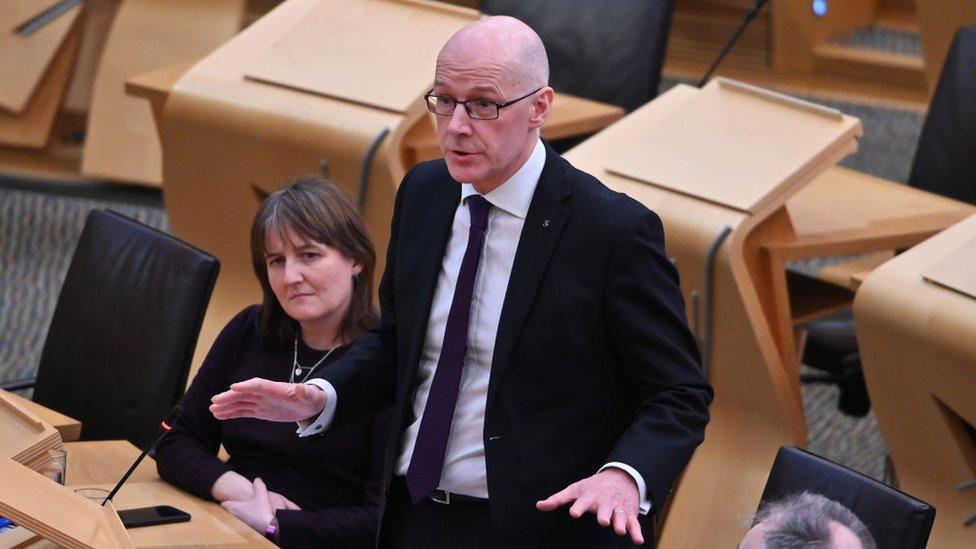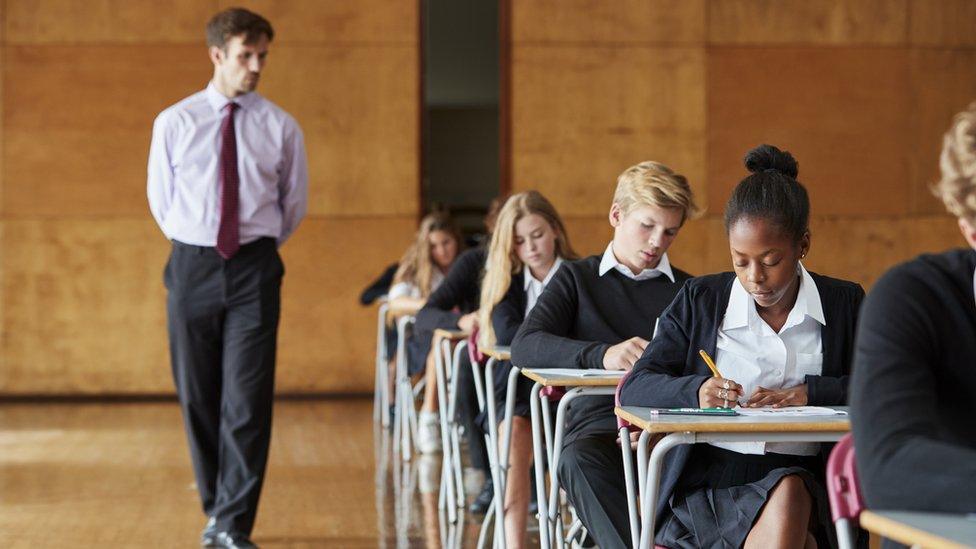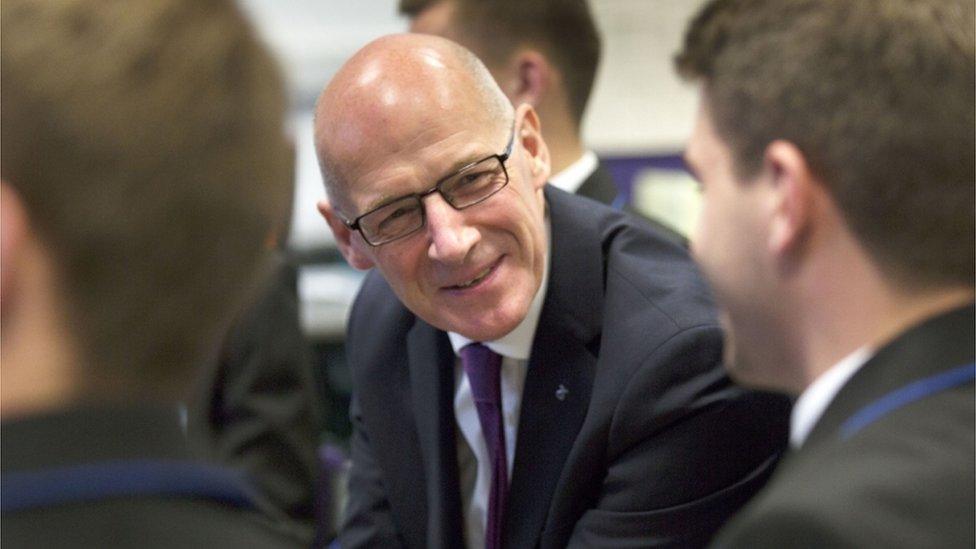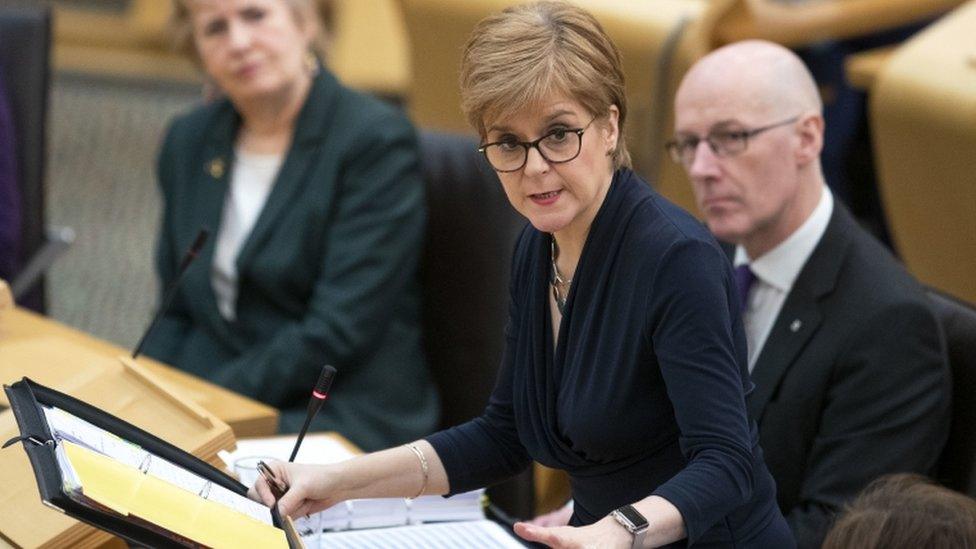School curriculum terms of review published
- Published

The terms of a review of the Curriculum for Excellence system used in Scottish schools have been published.
The Scottish government has tasked the The Organisation for Economic Co-operation and Development (OECD) with carrying out an independent study of the senior phase of education.
It will report back to ministers in February 2021.
The review was widened after MSPs voted to call for a fuller examination of "key weaknesses" in schooling.
Education Secretary John Swinney said he "firmly believes" that the current system is "the right approach".
And he said the review must not be a "distraction" from work to close the attainment gap between students from more and less affluent backgrounds.
Mr Swinney ordered a review of the senior phase of Scottish education in September 2019 following a critical report from a Holyrood committee.
It said there had been a "lack of clear leadership" from officials and "some narrowing of subject choice".
Mr Swinney was subsequently forced to widen this study to include earlier years of schooling after opposition MSPs defeated the government in a Holyrood vote, saying there were "key weaknesses in some key aspects of Scotland's school education" system.
Documents released by the government showed a decline in the exam performance of pupils in core Higher subjects in 2019, in some cases by as much as 10%.

John Swinney said the review must not be a "distraction" from work to close the attainment gap
On Tuesday, Mr Swinney insisted that pupils had achieved a "strong set of results" in exams, and that changes were explained by annual "volatility".
And he said the design of the curriculum would be a "key focus of the review", including "the approach to assessment, qualifications and other achievements and how well they articulate with the curriculum, learning and teaching".
Opposition MSPs have been critical of the government's approach, with Labour's Iain Gray saying the remit of the review was "extremely disappointing" and "an attempt to avoid scrutiny of problems".
The review will also take account of the views of teachers and pupils, with Mr Swinney saying "the voice of young people" would be "an important part of the review".
He added: "While every education system must be open to further improvement, I am also clear the review should not be a distraction or create uncertainty. This is a review of the curriculum, not Scottish education.
"We have embarked on reforms that are working to close the attainment gap, raise standards and are sustainable for the long term. There is still much to do, but I believe we are on the right track."

What's the right number of qualifications?

The review will include a look at two major issues which have been the subject of some debate.
One is how well the early years of secondary school - the Broad General Education - prepare students for S4, S5 and S6 when they study for qualifications.
The other is over how much local flexibility there should be.
This touches on the discussion over how many qualifications S4 students should be able to obtain.
Some schools offer the chance to do six, others seven. A few offer up to nine or try to bypass S4 qualifications completely.
This has led some parents to claim their children could be disadvantaged or face a restricted choice of subjects.
Others point out that what matters is what a young person has achieved by the time they leave school - not by the end of a particular year.
The direction of travel in recent years has been to try to empower headteachers so any move away from local decision making would seem unlikely.
The report is due in February 2021 - three months before the Holyrood elections.
One question is the extent to which it may influence the manifestos of the SNP or the other parties.
- Published21 February 2020

- Published5 February 2020

- Published16 January 2020
